Sensitive Content
This post includes photos some people may find upsetting.
When Fuff joined Veronica’s family in May 2009, he was just three months old and appeared to be a pretty typical Burmese kitten. “Even that small he had a massive purr motor and he instantly hooked us, ” remembers Veronica. “He was just gorgeous.”
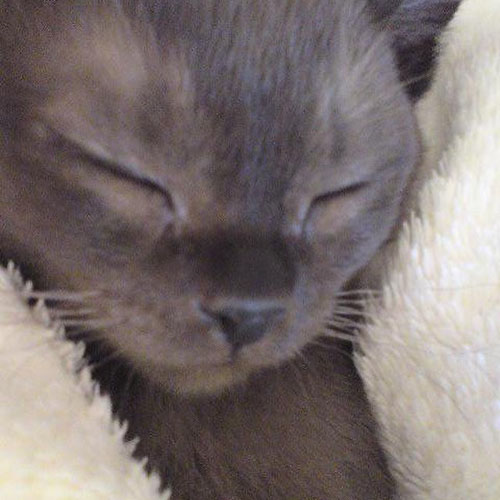
Three months later, Veronica and her family decided to get Mozz, another Burmese kitten, to keep Fuff company and provide him with a playmate. “[Fuff] was extremely attached to us,” explains Veronica. “Literally, we could not do anything without him being underfoot, in our laps, in the bed. Whenever we stood still, Fuff would be on us in one way or another.”
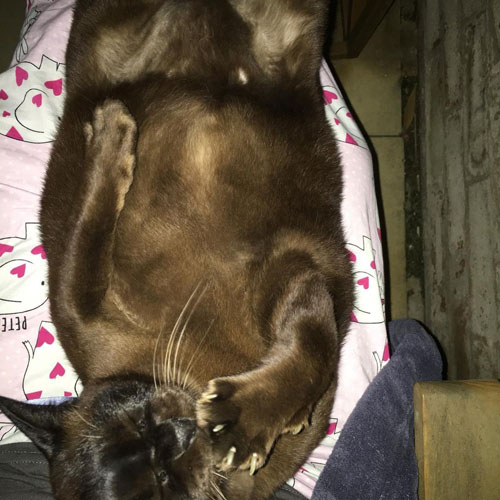
Veronica thought another cat would provide Fuff with the stimulation and companionship he appeared to be wanting, and she was pleased when he and Mozz became fast friends. However, it wasn’t long before Veronica noticed the handsome Burmese cat had scrapes and scratches after his relatively tame play sessions with his new brother, eventually culminating in a serious wound in the spring of 2010.
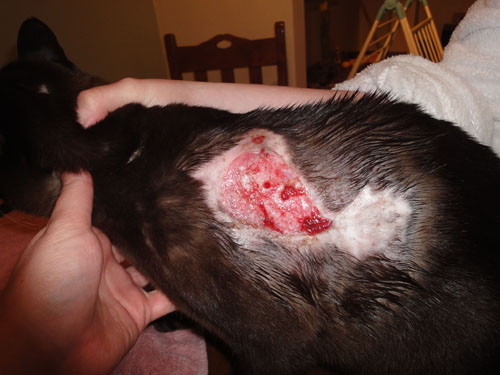
“We were referred to a dermatologist to work out what was going wrong,” says Veronica, and Fuff was diagnosed with Ehlers-Danlos syndrome (EDS), a group of rare inherited conditions that affect connective tissue. While Ehlers-Danlos syndrome — or feline cutaneous asthenia (FCA), as it is known when it affects cats — can manifest in a number of different ways, Veronica learned the condition caused Fuff to be born with unusually loose and fragile skin.
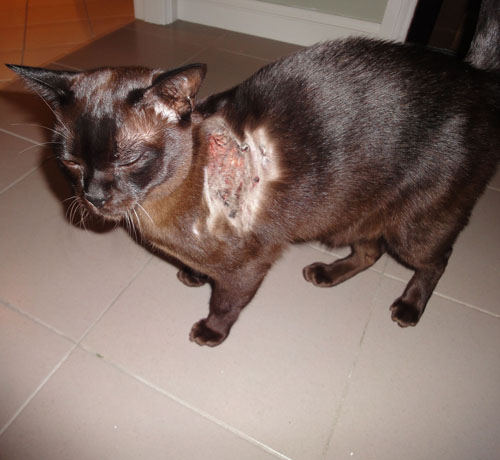
She discovered Fuff’s skin was incredibly prone to injury, and that he could cause severe trauma to himself simply by scratching his body with his claws like a typical cat. “He can tear gaping flaps in his skin,” explains Veronica.
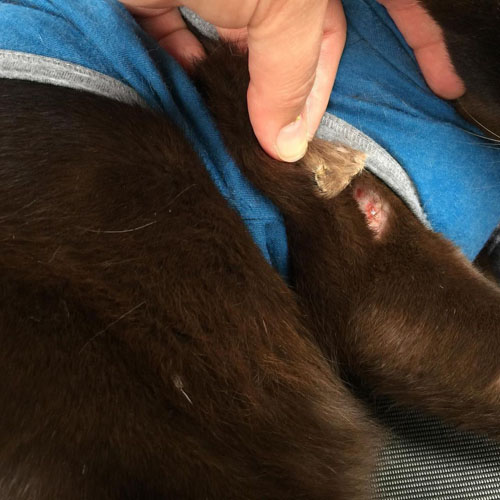
In order to protect Fuff’s delicate skin, Veronica began clothing the adorable Burmese feline, a practice which has been pretty successful.
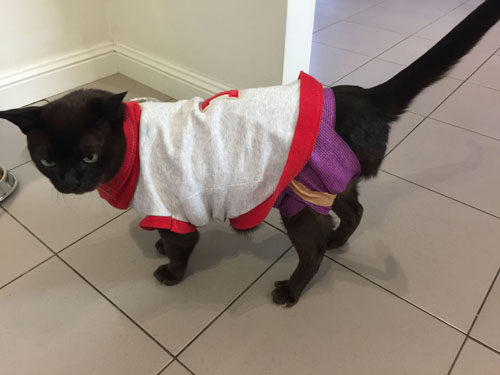
In fact, more than a decade after he was diagnosed, Fuff is doing well, and he very rarely suffers any serious injuries, especially because Veronica regularly trims his claws and the claws of the other cats who share his home. “He does have a very large bald patch that needs constant protection though — it is right in line with where his back kicker likes to scratch!” says Veronica.
While Fuff is generally good about wearing clothes, he sometimes slips out of his outfits, putting his fragile skin at risk. Consequently, he has had quite a few wounds over the past 11 years, including a large one on his neck that required staples and antibiotics, but Veronica has been able to care for most of Fuff’s injuries at home.
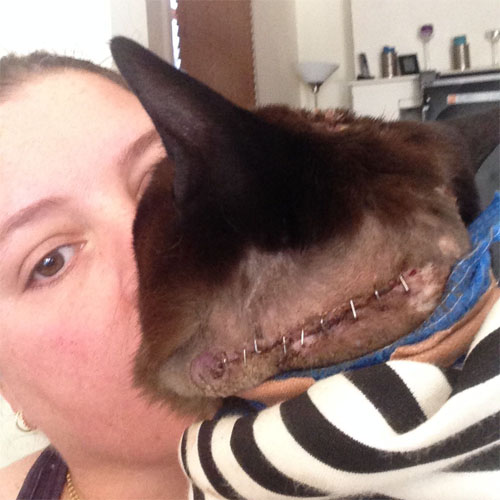
“The vet has pretty much given us carte blanche to treat his wounds as we see fit,” explains Veronica. “We are experts at vet wrap, so the vet has given us all the information we need to confidently bandage him and monitor his wounds through to healing.”
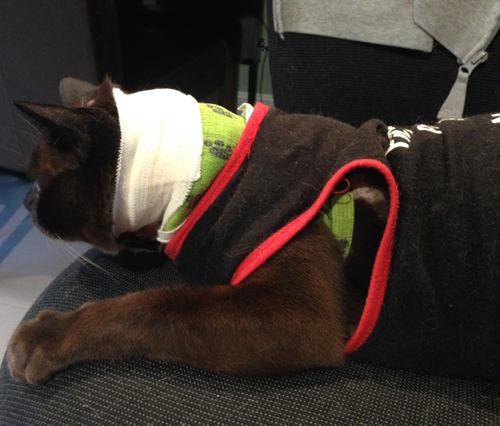
As a result of Ehlers-Danlos syndrome, Fuff also developed a mildly enlarged bowel approximately two years ago, causing him to have chronic constipation. While this 12-year-old feline recently had to have an enema at the vet’s office after becoming impacted, Veronica is able to manage most of Fuff’s gastrointestinal issues through medication and diet. “He can easily get constipated, so he takes both Actilax and Cisapride on a daily basis to keep things regular,” says Veronica. “It is very important to keep him hydrated, and be vigilant with his diet — lots of wet, oily food.”
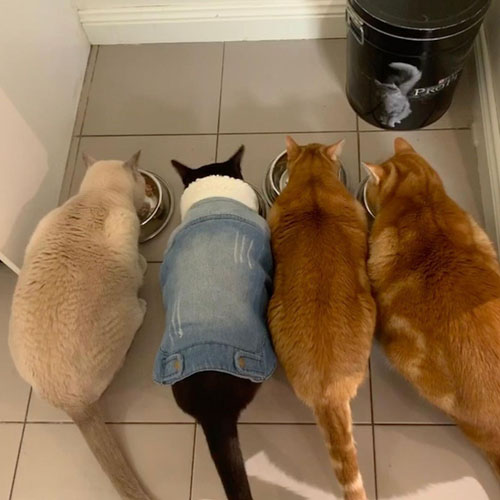
Without a doubt, Fuff definitely requires more care than the average cat, but he’s actually a pretty typical feline who loves to play and cuddle. In fact, this senior boy is one of the most energetic and affectionate cats Veronica has ever met, and as soon as she sits down, Fuff is in her lap, eager to snuggle. “He will often drape his front paws around my neck and pull me in for cuddles,” says Veronica. “We often joke about his resting bitch face, but if you were looking at a picture with sound on, you would be more likely to hear purrs.”
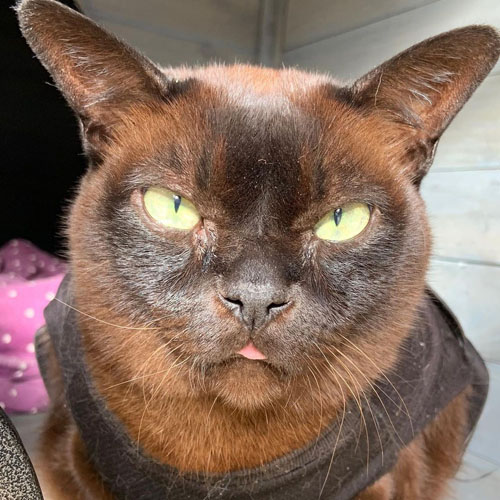
While it’s obvious Fuff is thriving, Veronica has encountered more than a few people over the last 12 years who believe he must be suffering and should be euthanized. “He leads such an incredible, fun and happy life,” says Veronica. “I challenge anyone to meet him and still have that point of view.” She’s also often asked if there is a cure for Ehlers-Danlos syndrome, and while one does not exist, Veronica believes — for Fuff — it is a surprisingly manageable genetic condition.
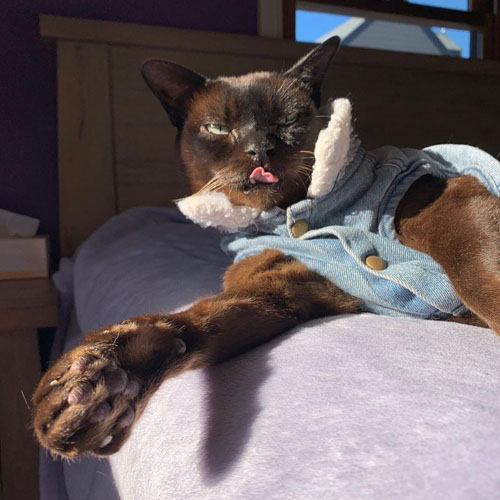
However, Ehlers-Danlos syndrome is still not well-known, even less so when it comes to felines, which is why it’s so important for Veronica to raise awareness about this rare condition. After all, if more people know about EDS, the lives of affected cats can be saved through early diagnosis and treatment, allowing them to enjoy unique bonds with their families like the one Fuff shares with his mom. “I am convinced that Fuff’s condition gives him an extra special personality,” explains Veronica. “He is very intense with wanting cuddles, and the more securely you can draw him into your arms, the harder he purrs and relaxes.”
When Fuff joined her family 12 years ago, Veronica didn’t have any experience caring for a cat with special needs, much less one with a rare condition like Ehlers-Danlos syndrome. Today, not only would she gladly adopt a special needs cat, looking after Fuff has been so rewarding, Veronica believes she’d actually prefer it to getting a typical feline. “Fuff means the world to me,” says Veronica. “He is pure joy, and his resilience has taught me just what he is capable of, and what other cats of similar needs can do.”
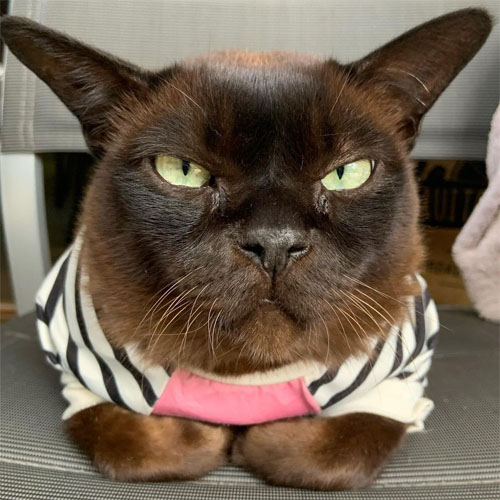
To learn more about this handsome cat, you can follow Fuff on Instagram.